
The conference is now over, but see who the speakers were and what happened throughout the day by clicking on the tabs below.
+ Day one
RCEM’s speakers for the first day of the virtual conference on 26 September.
The conference is now over, but listed below are all the speakers who were featured throughout the day. To view more of what happened, check out our X account (formerly Twitter) @RCEMevents where we posted the day’s events with the hashtag #RCEMasc. You can also view the RCEM Virtual Programme.
Welcome
Opening remarks from Glasgow’s Lord Provost representative Bailie Jim Kavanagh were followed by a welcome from the Annual Scientific Conference 2023 Programme Committee.
Chair of the morning session, Professor Jason Smith of University Hospitals Plymouth, and RCEM Research Committee Chair, plus moderator, Dr Salwa Malik of Royal Sussex County Hospital, and RCEM’s Vice President for Membership then welcomed our prestigious keynote speakers to stage. The audience then heard an address by RCEM President Dr Adrian Boyle, Addenbrooke’s Hospital, Cambridge, who began his term in October 2022 and has his own blog if you wish to see what important issues he has been acting on lately.
We then began with our first keynote presentation.
Professor Ellen Weber, University of California, San Francisco, and Emergency Medicine Journal
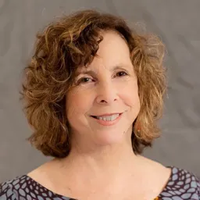
Presenting ‘Are we there yet? Progress and pitfalls and perils in EM research’, Professor Weber described how research has changed EM practice, highlighted areas that need more (and less) attention and reflected on the perils of the current research environment.
Professor Ellen Weber MD is Editor-in-Chief of the Emergency Medicine Journal and Professor of EM at the University of California, San Francisco. Her academic interests include ED utilisation, crowding and flow, quality of care, and peer review in publication. She serves as a research teacher and mentor for EM nurses, trainees and faculty at Muhimbili National Hospital and other sites in Tanzania and sub-Saharan Africa.
Professor Timothy Coats, University of Leicester
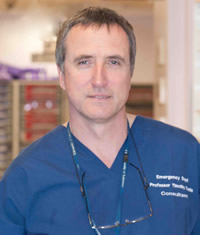
Presenting ‘Randomisation without consent’, Professor Coats covered the ethical basis of consent for emergency care research, systems for consent in emergency care and give you the confidence to randomise a patient without consent.
Tim Coats is Professor of EM at the University of Leicester. He trained in EM in Leeds and London, developing a particular interest in pre-hospital and trauma care. His research interests are in clinical trials in emergency care, coagulation following injury, and data analytics.
Virtual exhibition and breaks
During the day we gave you regular breaks to make the most of the conference. They were an opportunity to check out those who are exhibiting. Aerogen, AstraZeneca, Eolas Medical, Fisher & Paykel Healthcare, FUJIFILM Sonosite, Galen | Penthrox (methoxyflurane), LumiraDx, MeMed, QuidelOrtho, Radiometer Limited, Sarstedt Ltd, SERB Pharmaceuticals and Trauma App were available through the virtual conference platform.
After the half-hour morning break, we moved into the pre-lunch sessions starting at 11.35am and covered evidence into practice, which was chaired by Professor David Lowe, Queen Elizabeth University Hospital, Glasgow and Scottish Government with the moderator , Portsmouth Hospitals University NHS Trust and RCEM ACP Chair.
Professor Carlton, North Bristol NHS Trust
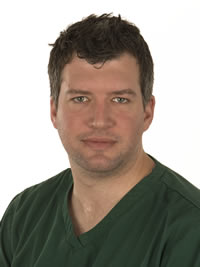 Presenting ‘The RELIEF Trial: Exploring outcomes in older patients with rib fractures’ Professor Carlton explored the outcomes of older patients with rib fractures within the context of, covered the next steps in managing pain and respiratory compromise in this patient group and explained the practicalities of delivering research in older patients in emergency settings.
Presenting ‘The RELIEF Trial: Exploring outcomes in older patients with rib fractures’ Professor Carlton explored the outcomes of older patients with rib fractures within the context of, covered the next steps in managing pain and respiratory compromise in this patient group and explained the practicalities of delivering research in older patients in emergency settings.
Professor Carlton is a huge fan of all things emergency research and especially pragmatic clinical trials in emergency settings. Edd is the current RCEM Professor and leads the NIHR Emergency Care Incubator with the aim of developing research opportunities across our specialty. Edd is the Chief Investigator of the RELIEF, COMITED and DEXACELL Trials.
Dr Rachel McLatchie, NHS Lothian, Edinburgh
Showcasing ‘The DAShED study findings’, Dr McLatchie created an appreciation for the rationale for and aims of the DAShED study by describing the results of the DAShED study and the understand implications for further research. She increased awareness of future phases of DAShED and encouraged collaboration from UK sites.
Dr McLatchie is an EM & PEM trainee in Southeast Scotland. She was the local EMERGE-TERN fellow in 2020, which ignited an interest in EM research, specifically regarding the diagnosis of aortic dissection in the ED. She was the joint-winner of the Rod-Little Prize at the 2022 RCEM ASC and was Chief Investigator for the DAShED study.
Professor Alasdair Gray, Royal Infirmary of Edinburgh
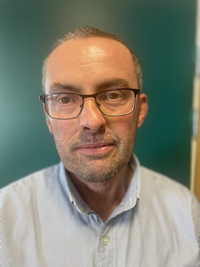
Examining ‘The ABC sepsis trial’, Professor Gray provided the rationale for the ABC-Sepsis trial research question, looked at the reasons for the design of the trial and explored the main results of the trial and how they align with previous evidence.
Professor Gray is a consultant in emergency medicine in Edinburgh. He has more than 20 years’ experience in the delivery of randomised trials. He is Chief Investigator of the recently reported Rapid-CTCA trial investigating the role of CTCA in patients with suspected ACS. He is co-CI for the BHF funded Target-CTCA and the ABC Sepsis trial. He was previously clinical director of Edinburgh Emergency Medicine and Research Lead for the RCEM research committee. He is R&D director for NHS Lothian.
Get involved
After the talks from Professor Gray, Dr McLatchie and Professor Carlton attendees had the chance to put ask questions during a Q&A session.
All questions attendees had, whether they were at the conference in-person or virtually, were submitted through the Online Q&A function. They were also able to ‘like’ questions that were put forward to ensure the most popular were put to the speakers.
Afternoon focus
After lunch, cutting-edge EM research with oral abstract presentations were showcased. These free papers featured the top-scoring abstract submissions from non-trainees.
Our last subject matter of the day was PEM research with Chair Dr Maya Naravi, Bradford Royal Infirmary and RCEM Vice President for Education. The session highlighted the latest developments in the field.
RCEM members then attended the AGM, which was chaired by Dr Boyle. Members had the chance to have a say on some important College issues.
RCEM’s speakers for the first day of the virtual conference on 26 September.
The conference is now over, but listed below are all the speakers who were featured throughout the day. To view more of what happened, check out our X account (formerly Twitter) @RCEMevents where we posted the day’s events with the hashtag #RCEMasc. You can also view the RCEM Virtual Programme.
We started the day at 9:30am with a David Williams Lecture, chaired by Dr Ffion Davies, University Hospitals of Leicester and IFEM, and moderator Dr Maya Naravi of Bradford Royal Infirmary and a RCEM Vice President.
Professor Suzanne Mason, CURE Group, School of Health and Related Research, University of Sheffield
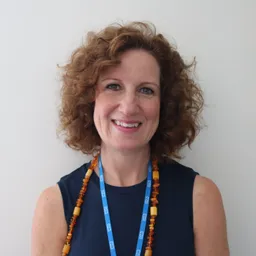
Presenting ‘David Williams Lecture: Is it choice not chance that will determine our destiny?’, Professor Mason reflected on the challenges we face in EM, how research can lead to a greater understanding of where solutions lie and why we should take the future into our own hands.
Professor Suzanne Mason is a professor of EM at the University of Sheffield. She is Director of Research and Development at Barnsley Hospital NHS Foundation Trust, an NIHR Senior Investigator and Deputy Director of the Yorkshire and Humber NIHR Applied Research Centre. Her main research interests applying the power of routine data for research and evaluating complex interventions in emergency and urgent care.
Colonel Si Horne, Royal United Services Institute, Whitehall
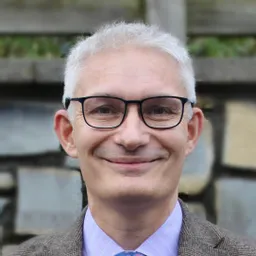
Presenting ‘Lions led by donkeys: Some rules of thumb for global health’, Colonel Horne covered how effective global health depends on improvements in systems. He explained that global health skills can be developed by investing time in understanding our own health system and showed you why learning to celebrate and work with difference will yield system changes that are appropriate to the context and resources available.
Colonel Si Horne is an Army EM consultant who has deployed extensively on operations. In his last post he ran UK military health development programmes worldwide. He wrote a PhD on medical civil-military relationships, has been Deputy Medical Director at Plymouth and received an OBE in 2020. Currently Si is the British Army Visiting Fellow at the Royal United Services Institute.
Virtual exhibition and breaks
During the day we gave you regular breaks to make the most of the conference. They were also an opportunity to check out those who are exhibiting. Aerogen, AstraZeneca, Eolas Medical, Fisher & Paykel Healthcare, FUJIFILM Sonosite, Galen | Penthrox (methoxyflurane), LumiraDx, MeMed, QuidelOrtho, Radiometer Limited, Sarstedt Ltd, SERB Pharmaceuticals and Trauma App were available through a chat function on the virtual conference platform.
Rod Little Prize Papers
After the half-hour morning break, we then moved into the pre-lunch sessions starting at 11am, covering Rod Little Prize Papers, which was chaired by Professor Jason Smith, University Hospitals Plymouth and RCEM Research Committee Chair with the moderator Professor Heather Jarman, St George’s University Hospitals NHS Foundation Trust.
They include:
Dr Cal Doherty, Queen Elizabeth University Hospital: explored the views of emergency care providers on providing emergency healthcare for asylum seekers and refugees.
Dr Natasha Matthews, St George’s University Hospitals NHS Foundation Trust: highlighted patterns of emergency service used among migrants: a systematic review.
Dr Tom McKernan, Stepping Hill Hospital: examined how acute care clinicians deliver optimal end of life care and recognising the dying patient.
Dr Sophie Richter, University of Cambridge: looked at predicting recovery in patients with mild traumatic brain injury and a normal CT using diffusion tensor imaging.
Dr James Van Oppen, University of Leicester
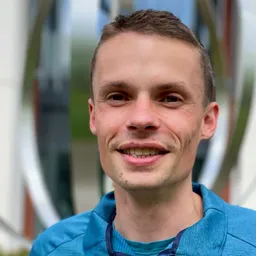
Presenting two subjects: ‘Relative hypotension: the mortality effect of below-baseline systolic pressure in older people receiving emergency care’ and ‘Measuring what matters: validation of the Patient-Reported Outcome Measure for Older People living with frailty receiving Acute Care (PROM-OPAC)’, Dr Van Oppen has a special interest in acute frailty care and chairs the geriatrics section for the European Society of Emergency Medicine.
His research explores the tensions between evidence-based and person-centred healthcare in emergency medicine. As part of his PhD, he has developed a patient-reported outcome measure for older people with frailty receiving acute care (the PROM-OPAC).
Afternoon focus: Evidence into practice
After lunch, we heard how evidence was put into practice chaired by Professor Richard Body, University of Manchester and Manchester University NHS Foundation Trust and moderated by Ms Julia Grahamslaw, NHS Lothian.
The session will feature:
Dr Ian Pope, Norfolk and Norwich University Hospital

Presenting ‘Cessation of Smoking Trial in the Emergency Department (COSTED) – Results’ Dr Pope explored what have the COSTED team learnt about recruiting in the ED, whether smoking cessation intervention in the emergency department works and how should COSTED be implemented.
Dr Ian Pope is a specialty doctor in EM, with a special interest in behaviour change in the ED. Ian is currently co-leading the Cessation of Smoking Trial in the Emergency Department, an NIHR funded RCT of a smoking cessation intervention across 6 EDs. Ian also leads the Physician Associate Emergency Medicine module at the University of East Anglia.
Professor Heather Jarman, St George’s University Hospitals NHS Foundation Trust

Presenting ‘Low-level carbon monoxide exposure: Another ED rare ‘disease’?’, Professor Jarman shared the evidence on the effects of low-level carbon monoxide (CO) exposure, informed the audience of their role in the diagnosis of CO in the ED and provided an overview of CO research in emergency department patients.
Professor Jarman is Research Director Nursing, Midwifery and Allied Health Professions, and clinical research lead for the ED at St George’s University Hospitals NHS Foundation Trust, London.
She leads the Trust clinical academic strategy and is a supervisor and clinical mentor for NIHR pre-doctoral and doctoral clinical academic fellows. She is also co-chair of the National Institute for Health Research (NIHR) Emergency Care Incubator and holds a Visiting Chair at Kingston University.
Professor Daniel Horner, Northern Care Alliance NHS Foundation Trust
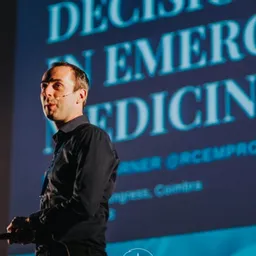
Presenting ‘Thromboprophylaxis in Lower Limb Immobilisation (TiLLI)’, Professor Horner explained the risks of venous thromboembolic disease associated with temporary lower limb immobilisation after injury, discussed and reviewed the recent evidence base in this area and previewed the recently funded TiLLI trial, providing new evidence on use of Direct Oral Anticoagulants in this setting and starting in 2024.
Professor Dan Horner is a consultant in EM and intensive care at a major trauma and neurosciences centre in the Northwest of England and outgoing RCEM Professor. He has research interests in the prevention and treatment of venous thromboembolic disease, TBI coagulopathy and early sepsis management in the critically ill. He is a topic expert for several NICE guidelines on VTE and accompanying quality standards. He also chairs the VTE /Anticoagulation at Salford Care Organisation, an accredited VTE exemplar centre. He occasionally blogs (stemlynsblog.org) and infrequently tweets (@ExRCEMProf).
Get involved
After the talks from Professor Horner, Professor Jarman and Dr Pope, there was a chance to ask questions during a Q&A session.
All questions attendees had, whether they were at the conference in-person or virtually, were submitted through the Online Q&A function. Questions were also able to be ‘liked’ to ensure the most popular were put to the speakers.
There was then a break before the next and last evidence in practice session of the day, chaired by Professor Simon Carley, Manchester Royal Infirmary and Dean of RCEM, with one of our day one speakers moderating: Professor Ellen Weber, University of California and EMJ.
Mr Joshua Miller, West Midlands Ambulance Service University NHS Foundation Trust
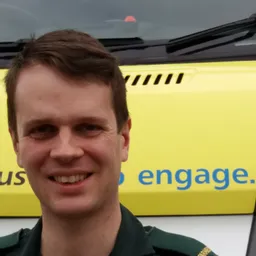
Presenting ‘MATTS (Major Trauma Triage Tool Study): Developing a national trauma triage tool’, Mr. Miller explored important concepts/issues in major trauma triage, introduced the MATTS project and presented a new candidate national major trauma triage tool and reviewed the diagnostic accuracy and real-life performance of the MATTS triage tool.
Josh qualified as a paramedic in 2012 and worked in Birmingham and the Black Country on ambulances and rapid response vehicles before moving into delivery of research studies such as PARAMEDIC-2 (adrenaline in out-of-hospital cardiac arrest), ACUTE (prehospital CPAP), and PACKMaN (ketamine versus morphine). He has worked on all three phases of the MATTS (Major Trauma Triage Tool Study) which has developed an optimally-performing tool to triage patients to Major Trauma Centre care.
Professor Richard Body, University of Manchester and Manchester University NHS Foundation Trust
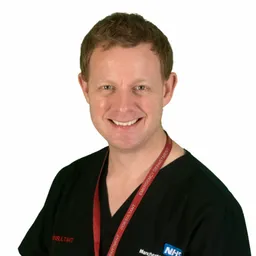
Presenting ‘Final results of the Prehospital Evaluation of Sensitive Troponin (PRESTO) study’, Professor Body explained the current evidence for prehospital diagnosis of acute myocardial infarction, explained what the PRESTO study tells us about how prehospital troponin testing and how decision aids such as T-MACS and the HEART score may be used in practice and the conduct of prehospital research into new diagnostic tests.
Professor Rick Body is a professor and consultant in EM, and Director of Research and Innovation at Manchester University NHS Foundation Trust. He pioneered several novel diagnostic strategies for acute coronary syndromes and has worked with NICE, NHS England and the IFCC. Rick is Deputy Editor at the Emergency Medicine Journal.
Professor Jan Jansen, Health Services Research Unit, University of Aberdeen and Division of Trauma and Acute Care Surgery, University of Alabama at Birmingham, USA
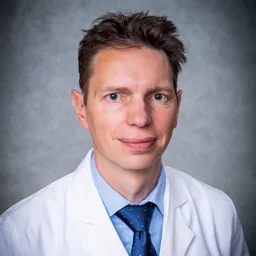
Presenting ‘Resuscitative endovascular balloon occlusion of the aorta for trauma: The UK-REBOA trial’ Professor Jansen raised awareness of the findings of the UK-REBOA trial, shared its implications and facilitate an understanding of contemporary clinical trials methodology.
Professor Jan Jansen is a trauma surgeon and professor of surgery at the University of Alabama at Birmingham (UAB) in the United States. He trained in the UK, South Africa, and Canada, and was a consultant general surgeon and intensivist in Aberdeen until 2017. He is the principal investigator for several major trauma randomized clinical trials.
The day then ended with one last Q&A with Professor Jansen, Professor Body and Mr. Miller.
RCEM speakers for the third day of the virtual conference on 27 September.
The conference is now over, but listed below are all the speakers who were featured throughout the day. To view more of what happened, check out our X account (formerly Twitter) @RCEMevents where we posted the day’s events with the hashtag #RCEMasc. You can also view the RCEM Virtual Programme.
We started the day at 9:30am with keynotes and RCEM Grant updates, chaired by Professor Jason Smith, University Hospitals Plymouth and RCEM’s Chair of the Research Committee, and moderator Professor Ellen Weber, University of California and EMJ, who spoke on day one.
Dr Stevan Bruijns, Division of EM, University of Cape Town and Yeovil District Hospital and Dr Ffion Davies, EM Consultant at the University Hospitals of Leicester
Presenting ‘Leadership lessons through global health’, Dr Bruijns and Dr Davies discussed the lack of access to emergency care research, which is a common problem in global health, showed that lack of access is commonly seen as a problem somewhere in low and middle-income countries and brought the concept of research equity (or lack of) much closer to home.
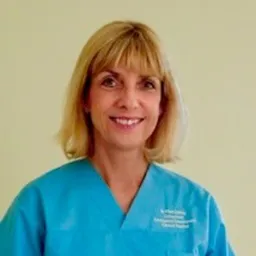
Dr Ffion Davies
Dr Davies is an Honorary Senior Lecturer, University of Leicester and President of the International Federation for Emergency Medicine. Ffion’s varied career has been dedicated to improving care in emergency departments, in particular the care of children. She is the main author of the textbook Emergency Care of Minor Trauma in Children and developed the website www.spottingthesickchild.com.

Dr Stevan Bruijns
Dr Bruijns is dual registered as a specialist in South Africa and the UK. His interests include quality improvement, emergency care development and research access in African low resourced settings. He has worked in a number of settings, including resource-rich and resource-poor settings.
Dr Mohammed Elwan, Kettering General Hospital, University Hospitals of Northamptonshire
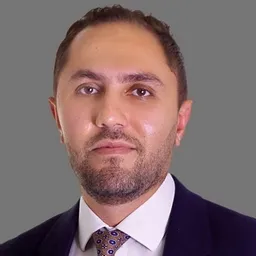
Presenting ‘Will this sepsis patient respond to fluid resuscitation?’, Dr Elwan discussed the need for individualised management in sepsis, highlighted the limitations of standard parameters to stratify patients according to fluid requirements and discussed the potential of non-invasive cardiac output monitoring and passive leg raise to offer more precise management.
Dr Mohammed Elwan trained in EM at Alexandria University Hospitals, Egypt and Leicester. Mohammed completed a PhD degree focussing on individualising sepsis management using novel technology. He is currently leading a thriving research delivery team at Kettering General Hospital endeavouring to improve access and inclusivity of research in ED. His research interests include medical technology, haemodynamics and diagnostics.
Dr Sarah Wilson, Wexham Park Hospital, Frimley Health NHS Foundation Trust
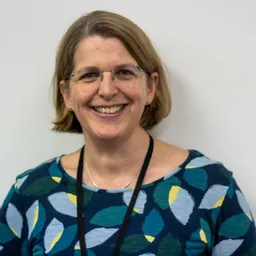
Presenting ‘Finding voices: Young people’s experiences of the ED’, Dr Wilson compared the expectations and experiences of adolescents presenting to ED with self-harm or suspected fracture and shared what was learned from doing this study.
Dr Sarah Wilson is an EM consultant in a DGH. Sarah has been involved in research for around 15 years on a wide range of topics. She is the ED research lead, the regional specialty lead for Trauma and Emergency Care and a member of the RCEM research committee. Sarah will be one of the RCEM Associate Professors from January 2024.
Dr Sarah Midgley, Royal Derby Hospital
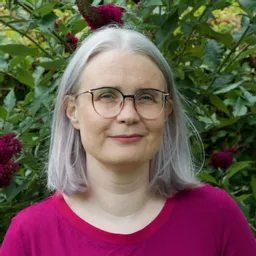
Presenting ‘Using an electronic Delphi study to develop an ED triage tool to detect serious injuries in older adults who have fallen less than 2 metres’, Dr Midgley gave a deeper understanding of the research project, highlighted the challenges of using an electronic Delphi study to develop an ED triage tool to detect injuries in older adults and presented and analysed the results of this study.
Dr Sarah Midgley is a member of the RCEM Older People in EM (OPEM) Special Interest Group and has a particular interest in the identification and management of major trauma in the older adult. Her research focuses on how to improve treatment and outcomes for this group of patients.
Dr Thomas Shanahan, North West England
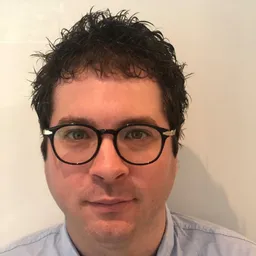
Presenting ‘Qualitative study exploring the experiences of academic clinical fellows in EM in the UK’, Dr Shanahan provided the context for early career academic training in EM in the UK, shared the themes identified as part of the interviews of current and former academic clinical fellows (and Welsh equivalent) in EM and presented ideas for how to improve early career academic training.
Dr Thomas Shanahan is an EM ST4 in the North West, as well as the EMTA Research Lead and is a member of the RCEM Research Committee and contributor to the St Emlyn’s blog. Thomas has recently finished an NIHR academic clinical fellowship at the University of Manchester. He has research interests in older people’s major trauma and global health.
Dr Nicholas Tilbury, Northern General Hospital, Sheffield
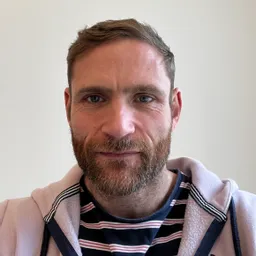
Presenting ‘The impact of body-worn cameras in the ED on staff and patient perceptions: An uncontrolled qualitative before-and-after study’, Dr Tilbury identified the common positive and negative perceptions of staff and patients on the use of body-worn cameras by staff members in the ED and highlighted any changes in these perceptions after the cameras were in use for a period of time.
Dr Nicholas Tilbury currently on a pre-hospital EM fellowship at Sheffield Northern General Hospital in association with Lincs & Notts Air Ambulance. Nicholas will go back into his final year as an EM trainee after completing this. he is also the lead editor for the RCEMLearning Clinical Cases and the trainee representative for the NIHR Emergency Care Incubator.
Dr Liza Keating, Royal Berkshire Hospital
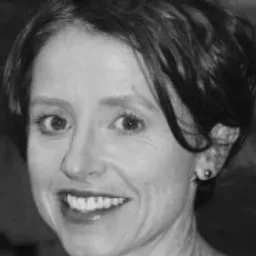
Presenting ‘Express relief: The identification of the UK EDs that perform consistently well’, Dr Keating presented an analysis of audit data against the RCEM clinical standards for pain management from 2017/18 and 2020/2021. The discussion also covered whether it is possible to identify emergency departments that perform consistently well against the RCEM clinical standards for pain management in both hip fracture and pain relief in children.
Dr Liza Keating has worked at the Royal Berkshire NHS Foundation Trust as a consultant in EM and critical care for over ten years. She is the research lead for the ED where they run a number of NIHR portfolio studies and have also undertaken a number of investigator-led projects.
Get involved
After the talks from Dr Keating, Dr Tilbury, Dr Shanahan, Dr Midgley, Dr Wilson and Dr Elwan, there was a Q&A session.
All questions attendees had, whether they were at the conference in-person or virtually, were submitted through the Online Q&A function. They were also able to ‘like’ questions that were put forward to ensure the most popular ones were addressed by speakers.
The panel Q&A then turned over to a presentation on the undergraduate QI essay prize: using simulation to improve post-cardiac arrest care.
Dr Cellan Liiv, Glasgow Royal Infirmary, NHS Greater Glasgow and Clyde
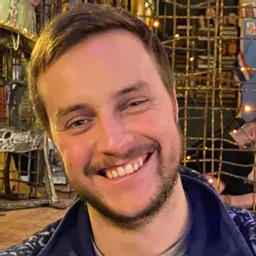
Presenting ‘Undergraduate QI essay prize: Using simulation to improve post-cardiac arrest care’, Dr Liiv explored cardiac arrest simulations to improve post-cardiac arrest care. The presentation also covered how to utilise quality improvement methods to self-develop simulation training and improve technical and non-technical skills during cardiac arrest simulation.
Dr Cellan Liiv is a recent graduate of the Scottish Graduate Entry Medicine programme. Cellan is currently working as an FY1 in General Surgery at the Glasgow Royal Infirmary. In August 2024, he will start an FY2 post in EM at Wishaw General Hospital, a specialty he wishes to pursue upon completing Foundation Training.
Virtual exhibition and breaks
During the day we gave you regular breaks to make the most of the conference where you could check out those who are exhibiting. Aerogen, AstraZeneca, Eolas Medical, Fisher & Paykel Healthcare, FUJIFILM Sonosite, Galen | Penthrox (methoxyflurane), LumiraDx, MeMed, QuidelOrtho, Radiometer Limited, Sarstedt Ltd, SERB Pharmaceuticals and Trauma App could be contacted through the virtual conference platform.
International grant updates
After the half-hour morning break, we then moved into the pre-lunch sessions starting at noon chaired by Dr Anisa Jafar, Royal Manchester Children’s Hospital and Humanitarian and Conflict Response Institute, University of Manchester, with the moderator Dr Stevan Bruijns, Division of EM, University of Cape Town and Yeovil District Hospital.
Dr Anisa Jafar, Royal Manchester Children’s Hospital and Humanitarian and Conflict Response Institute, University of Manchester
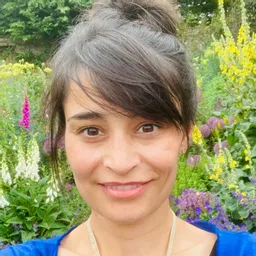
Presenting ‘Introduction to session and LMIC grants’, Dr Jafar explained what the RCEM’s LMIC grants entail and the structure of the International grants.
Anisa Jafar is an EM trainee in Manchester with a research interest in global health. Anisa is a member of two committees at RCEM: Research and Publications Committee and Global Emergency Medicine. She is also a founding member of the Global Emergency Care Collaborative (www.geccouk.com), which aims to unite the UK’s growing body of global health-oriented emergency care practitioners.
Dr Gabin Mbanjumucyo, King’s College Hospital NHS Foundation Trust
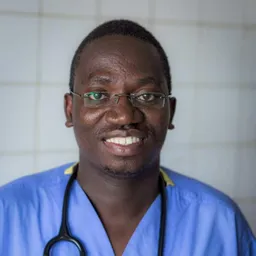
Presenting ‘Rwanda trauma care study, knowledge, attitude and practices survey’, Dr Mbanjumucyo covered the trauma pathway, existing challenges in trauma care and local population perception of trauma.
Dr Gabin Mbanjumucyo is a Rwandan-trained EM physician currently working in King’s College Hospital, one of UK’s busiest ED. Gabin is pursuing CESR to enable him to advance his global health career. His main interests are global health, point of care ultrasound and research.
Dr Kaushila Thilakasiri, Oxford University Hospitals NHS Trust
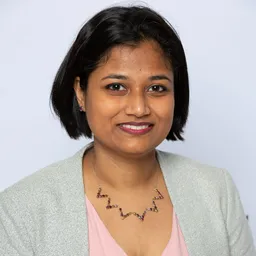
Presenting ‘Sri Lanka Out of Hospital Cardiac Arrest Study (SLOCAS) and lessons learnt on LMIC research’, Dr Thilakasiri showcased SLOCAS and its future, why collaborative research in LMIC is important and how to identify facilitators and barriers for research in LMICs.
Dr Kaushila Thilakasiri is an Emergency Physician from National Hospital of Sri Lanka. Kaushila is currently pursuing her overseas training at Oxford University Hospital in the UK as a Clinical Fellow. She is the principal investigator of SLOCAS Study, an ongoing research through the Sri Lanka’s national ambulance service, which was supported by the LMIC research grant of RCEM.
Dr Ankur Verma, Max Super Specialty Hospital, India
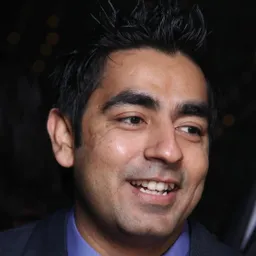
Presenting ‘A novel approach to paediatric trauma training for sustainable, scalable capacity building in India using tele-simulation’, Dr Verma focused on how to create a culturally relevant and affordable paediatric trauma tele-simulation video, measure effectiveness of teaching paediatric trauma skills through tele-simulation and the benefits of paediatric trauma tele-simulation training methods through feedback.
Dr Ankur Verma trained in EM at the George Washington University and is currently a Senior Consultant and faculty of EM at the Max Super Specialty Hospital in New Delhi (India). Ankur has a keen interest in Airways, Trauma, Academic EM, Resuscitation, and POCUS. He holds the post of President, Society for Emergency Medicine, India – Delhi Chapter. Ankur is also a member of the Trauma Special Interest Group of the International Federation of Emergency Medicine.
After another panel Q&A with Dr Verma, Dr Thilakasiri, Dr Mbanjumucyo, and Dr Jafar, the presentations were closed with a summary by Dr Jafar.
Dr Rob Mitchell, Alfred Hospital Emergency and Trauma Centre, Melbourne, Australia
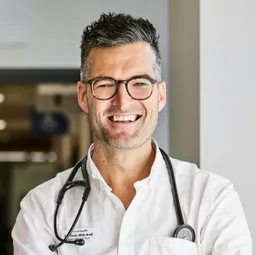
Presenting ‘Advancing emergency care, globally: How can medical colleges contribute?’, Dr Mitchell explored safe and effective approaches to global health training, facilitated multi-disciplinary collaboration in global emergency care and examined best practice in global emergency care development activities.
Dr Rob Mitchell is an EM physician at the Alfred Hospital Emergency & Trauma Centre in Melbourne, Australia. Rob is Chair of the Australasian College for Emergency Medicine (ACEM) Global Emergency Care Committee; and faculty for the Monash University/Alfred Health Capacity Building in Global Emergency Care program. He is involved with emergency care capacity development projects across Papua New Guinea, Solomon Islands, Vanuatu and Timor Leste, and is undertaking a PhD focused on triage in resource-limited emergency care settings.
Afternoon focus: TERN and PHOTON
After a lunch break, speakers presented on ‘Breaking evidence: TERN and PHOTON’, chaired Professor Ellen Weber, University of California and EMJ with moderator Dr Hannah Baird, Royal Bolton Hospital.
Dr Tom Roberts, Severn Deanery
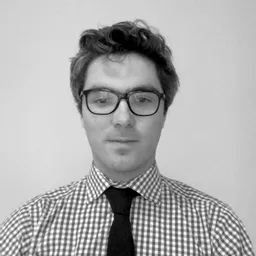
Presenting ‘SHED results: How sensitive is your CT?’, Dr Roberts explored the sensitivity of CT brain for Subarachnoid Haemorrhage in patients coming to the ED with acute headache, which patients require further investigations after a negative CT brain, and why we should think about acute headache research in terms of aneurysmal subarachnoid haemorrhage and non-aneurysmal subarachnoid haemorrhage.
Dr Tom Roberts was the inaugural Trainee Emergency Research Network (TERN) fellow between 2018-2020, which organised the Subarachnoid Haemorrhage in the ED Study. Tom recently submitted a PhD as the RCEM Doctoral Fellow examining interventions for patients presenting to the ED with acute headache. He is an EM Trainee in the Southwest of England.
Dr Fraser Birse, Severn Deanery
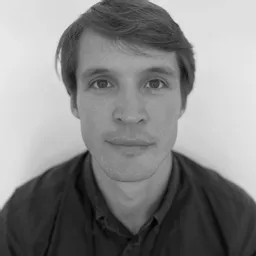
Presenting ‘ACS-ED’, Dr Birse discussed what proportion of adult UK ED attendances are for suspected cardiac chest pain and the index rate of acute myocardial infarction among such patients. He also covered the range of approaches used in assessing suspected cardiac chest pain in UK ED and what effect these different approaches have on ED length of stay.
Dr Birse is the current RCEM TERN (Trainee Emergency Research Network) Fellow. He has been working on the delivery of the TERN led studies ACS:ED and SHED since August 2022 and is an ST6 EM trainee working at the Royal United Hospital, Bath.
Dr Lisa Ramage, Essex and Herts Air Ambulance and Queen’s Hospital, Romford; and Dr Harriet Tucker, St George’s Hospital, and Air Ambulance Charity Kent Surrey Sussex
Presenting ‘Trauma Emergency Thoracotomy for Resuscitation in Shock (TETRIS): A multi-centre service evaluation’, Dr Ramage and Dr Tucker explored the indications for performance of thoracotomy in patients treated either by a pre-hospital critical care team or those managed in a major trauma centre within the UK over a 12-month period.
They also explained the findings at thoracotomy and interventions performed as part of a thoracotomy in this cohort of patients. Their analysis covered the outcomes in terms of survival rates and mortality following a thoracotomy performed either within an MTC or in the pre-hospital environment.
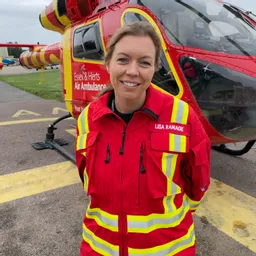
Dr Lisa Ramage
Dr Ramage is an EM ST6 from London. Lisa has recently completed subspecialist PHEM training. She also works with Essex & Herts Air Ambulance and MAGPAS Air Ambulance. She is the Applied Sciences Module Lead for the intercalated BSc in Prehospital Care at QMUL. She has a research interest, and was chair of PHOTON the prehospital trainee operated research network.
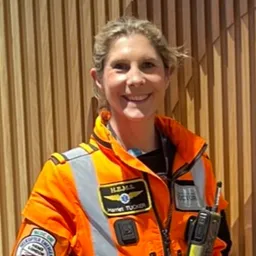
Dr Harriet Tucker
Dr Tucker is an EM and PHEM consultant at St George’s, London, and Air Ambulance Kent Surrey Sussex. Harriet was part of the founding committee of PHOTON, the pre-hospital trainees’ research collaborative. She undertook her MSc and PhD at the Centre for Trauma Sciences, QMUL, and is a senior lecturer at St George’s University of London.
The day then ended with one last Q&A with Dr Ramage, Dr Tucker, Dr Birse and Dr Roberts before the closing remarks. Please feel free to share your experiences and thoughts on the conference through our social media channels by DM or by using the hashtag #RCEMasc.
